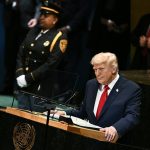
SBI Says Trump Tariffs Will Hurt Americans More Than Indians
The State Bank of India (SBI) has called U.S. President Donald Trump’s new tariff policy a “bad business decision,” warning that the impact will be harsher on American consumers than on Indian exporters.
Higher Costs Expected for U.S. Households
According to SBI’s internal assessment, the new tariffs—ranging up to 25% on Indian imports—are likely to increase prices on a wide range of goods in the U.S. The report predicts consumer prices in America may rise by 2.4% in the short term and 1.2% over the long term. This could result in an additional $2,400 in yearly expenses for average U.S. households, with wealthier families potentially seeing a burden of up to $5,000.
The poorest Americans, the report warns, may face a proportionally greater burden, as import-based inflation would directly affect essentials.
India’s Economy Relatively Insulated
In contrast, India is expected to experience only a marginal hit to its economy. SBI estimates a dip of just 0.25–0.30 percentage points in India’s GDP for the financial year 2025–26. While some exports like solar panels, electronics, pharmaceuticals, and gems may face slower demand, India’s export diversity and existing government incentive schemes are expected to cushion the blow.
Indian Industries on Alert
Export-intensive sectors in India have flagged immediate concerns, particularly about logistics, pricing, and pending shipments. Industry leaders believe that unless resolved swiftly, the tariffs could disrupt supply chains and create uncertainty across major export clusters.
India Responds with Caution
The Indian government has stated that it is evaluating the situation and will take appropriate steps to safeguard its economic interests. Officials indicated that diplomatic channels remain open and efforts are ongoing to negotiate better terms.
Strategic and Economic Pressure Grows
The 25% tariff on Indian goods is part of a broader U.S. trade reshuffle targeting over 70 countries. Analysts believe India was singled out not just for trade deficits, but also due to its continued energy and defense engagement with Russia. The move is being seen in New Delhi as both economic and strategic pressure.
However, economists widely agree that while these tariffs aim to rebalance trade, they could lead to unintended consequences—hurting American consumers more than their intended targets, and possibly undermining confidence in the global trade system.


















